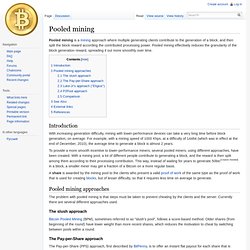

Bitcoins. Bitcoin Is Going To Take Off — Just Probably Not Thanks To Anyone You Know. Bitcoin Investors Ask For 'Safe Harbor' Exceptions In Proposed 'BitLicense' Regulations. Everything You Need to Know About Bitcoin: VICE Podcast 027. Congressional Report Warns of Potential Bitcoin Threat to US Dollar. A Congressional report quietly released last month suggests that bitcoin could be a threat to US monetary policy, and makes the case for continued central banking control.

The report, Bitcoin: Questions, Answers, and Analysis of Legal Issues, was published by the Congressional Research Service, which produces research reports for US policy makers. It argues for the benefits of a single, incumbent currency (the US dollar), for stability. “If greater use of bitcoin (and other cryptocurrencies) leads to multiple monetary units, these benefits could be threatened, particularly if these new currencies continue to exhibit a high degree of price volatility,” the paper says.
The authors suggest that too much bitcoin usage would lead to a tightening of monetary policy, because it could increase the money supply of US dollars. This would depend on a couple of factors, though. Secondly, bitcoins must be used as a currency in their own right. Pair also disagrees with the hoarding argument. Into the Bitcoin Mines. On the flat lava plain of Reykjanesbaer, Iceland, near the Arctic Circle, you can find the mines of Bitcoin.

To get there, you pass through a fortified gate and enter a featureless yellow building. After checking in with a guard behind bulletproof glass, you face four more security checkpoints, including a so-called man trap that allows passage only after the door behind you has shut. This brings you to the center of the operation, a fluorescent-lit room with more than 100 whirring silver computers, each in a locked cabinet and each cooled by blasts of Arctic air shot up from vents in the floor.
These computers are the laborers of the virtual mines where Bitcoins are unearthed. Instead of swinging pickaxes, these custom-built machines, which are running an open-source Bitcoin program, perform complex algorithms 24 hours a day. The network is programmed to release 21 million coins eventually. Mr. Most of the new operations popping up guard their secrecy closely, but Mr.
When Mr. Mr. Mr. Bitcoin: A Peer-to-Peer Electronic Cash System – Satoshi Nakamoto. Pooled mining. Pooled mining is a mining approach where multiple generating clients contribute to the generation of a block, and then split the block reward according the contributed processing power.

Pooled mining effectively reduces the granularity of the block generation reward, spreading it out more smoothly over time. Introduction With increasing generation difficulty, mining with lower-performance devices can take a very long time before block generation, on average. For example, with a mining speed of 1000 Khps, at a difficulty of 14484 (which was in effect at the end of December, 2010), the average time to generate a block is almost 2 years. To provide a more smooth incentive to lower-performance miners, several pooled miners, using different approaches, have been created. Pooled mining approaches The problem with pooled mining is that steps must be taken to prevent cheating by the clients and the server. The slush approach The Pay-per-Share approach Luke-Jr's approach ("Eligius") P2Pool approach. Mining Pool Centralization At Crisis Levels. One of the key requirements for the Bitcoin network to be secure is that mining, the distributed process in which the network processes and secures transactions, must be decentralized; that is to say, there should be no single individual or entity with more than 50% of the computing power of the entire network.

If the condition is not met, then Bitcoin essentially collapses into a less efficient model of a centralized database, where the majority shareholder can unilaterally block and even reverse transactions at will. Most of the time in Bitcoin’s history, this condition has been met; although miners do organize themselves into centralized groups known as pools, there have been a wide array of pools to choose from, and usually no single one has had more than a quarter of the network’s power.
Over the past few months, however, a new mining pool has emerged that has come to be a serious threat to this status quo: GHASH.io. What Is Mining? Bitcoin P2P Virtual Currency. Bitcoin Watch - www.bitcoinwatch.com.